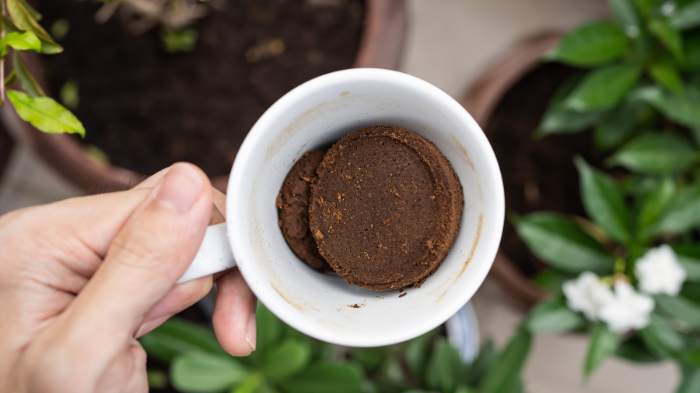To use blackstrap molasses as fertilizer, dilute it with water and apply it to the soil around plants. Mix one tablespoon per gallon of water for a nutrient-rich solution.
Garden enthusiasts and organic farmers often seek natural alternatives for plant nutrition, and blackstrap molasses is a popular, sustainable choice. This thick, dark syrup, a byproduct of the sugar refining process, is loaded with minerals such as calcium, magnesium, iron, and potassium, which are beneficial for plant growth.
Blackstrap molasses energizes the beneficial microbes present in the soil, enhancing soil quality and fertility. This helps plants absorb nutrients more efficiently, leading to healthier growth and improved yields. Its use as a fertilizer stems from its ability to provide plants with quick energy and vital nutrients, making it an excellent supplement in any gardening routine.
Why Blackstrap Molasses Benefits Plants
Blackstrap molasses provides key nutrients to help plants grow strong. Rich in potassium, calcium, iron, and magnesium, plants can thrive. These minerals support overall plant health and development. Let’s not forget, it’s a great sugar source for soil microbes.
By feeding the microbes, blackstrap molasses boosts soil fertility. This leads to an increase in nutrient absorption for plants. More microbes mean better soil structure and improved water retention. It’s like giving plants a multivitamin that also feeds their friends in the soil.
Preparing Blackstrap Molasses Solution
Using blackstrap molasses as fertilizer boosts soil health and plant growth. To prepare a solution, mix one tablespoon of molasses with one gallon of water. This dilution ratio works well for most plants.
Always use lukewarm water to ensure the molasses dissolves completely. Cold water makes it hard to mix. Use filtered or distilled water if possible. This is because tap water may contain chemicals that can affect the mixture’s quality. Organic blackstrap molasses is the best choice for a nutrient-rich fertilizer. Your plants will love it!
>> Read More: Can You Apply Gypsum and Fertilizer Together?
Application Methods For Optimal Results
Blackstrap molasses serves as a natural fertilizer for plants. Rich in minerals, it nourishes soil and boosts plant growth. To apply a foliar spray, begin by mixing one tablespoon of molasses with one gallon of water. This sweet solution should be sprayed directly onto the leaves. Aim for early morning or late afternoon, avoiding the strong midday sunlight.
The soil drench method is straightforward. Combine one cup of molasses with five gallons of water. Drench the soil at the base of your plants once every couple of weeks. This treatment provides essential nutrients directly to the roots. Regular use can enhance soil quality and plant health.
Timing And Frequency Of Fertilization
Timing and frequency of fertilization with blackstrap molasses are vital. Understanding the growth stage of your plants is essential. Apply more frequently during active growth stages, which typically happen in spring and summer.
During the vegetative stage, plants need nourishment to build strong stems and leaves. A bi-weekly application could benefit them. As plants enter flowering or fruiting stages, molasses can encourage larger blooms and fruit sets. Here, a weekly application may be more appropriate.
Different seasons influence plant needs. During colder months, plant growth slows down. You should reduce the use of blackstrap molasses. A monthly application or less might suffice. Monitor your plants and adjust as necessary.

Troubleshooting Common Issues
Using blackstrap molasses as fertilizer offers many benefits, but it might also attract mold and pests if not used properly. To prevent this, incorporate good air circulation around your plants and avoid excess humidity. It’s important to dilute molasses properly; typically, one tablespoon per gallon of water is sufficient. For pest issues, consider adding neem oil or mild dish soap to the mixture to repel insects.
Overfertilization with molasses can be harmful. Watch out for symptoms such as yellowing leaves, slow growth, and brown tips on foliage. These signs indicate that plants are getting too much. To fix this, flush the soil with clean water and reduce the frequency and concentration of molasses applications.
Real-world Success Stories
Vegetable gardens thrive with blackstrap molasses. Users report better growth and healthier plants. Mix molasses with water for easy application. One user saw increased tomato yields after consistent use.
| Plant Type | Molasses Solution | Results |
|---|---|---|
| Roses | 1 tablespoon per gallon | Lush blooms, vibrant colors |
| Peonies | 1 tablespoon per gallon | More buds, stunning flowers |
For flower beds, molasses is a secret weapon. Users celebrate colorful, robust blossoms. Blackstrap molasses provide essential nutrients like iron. Flowers like dahlias and marigolds showed remarkable improvement.
>> Related Topic: Can I Apply GrubEx and Fertilizer At The Same Time?
Frequently Asked Questions On How To Use Blackstrap Molasses As Fertilizer
#1. Is Blackstrap Molasses Good For Plants?
Blackstrap molasses provides plants with a natural source of carbohydrates and essential trace elements. This makes it an excellent amendment to enhance soil vitality and promote healthy plant growth when used in moderation.
#2. How Do You Apply Molasses As Fertilizer?
To use molasses as fertilizer, mix 1-3 tablespoons with a gallon of water. Apply the solution directly to the soil around your plants or use it as a foliar spray for quick absorption.
#3. What Are The Benefits Of Molasses In Gardening?
Molasses boost soil microorganism activity, enhance nutrient absorption, and help in developing stronger plant roots. Its high calcium and magnesium content also aids in improving overall plant health.
#4. Can Blackstrap Molasses Help Flowering Plants?
Yes, blackstrap molasses can benefit flowering plants by providing sugars for energy, which is especially valuable during the flowering stage for bloom development and fruit setting.
Conclusion
Blackstrap molasses isn’t just for the kitchen; it’s a garden ally too. Rich in nutrients, it boosts soil health and plant growth. Remember, moderation is key. Embrace this natural, inexpensive fertilizer for a greener garden. Unleash the power of blackstrap molasses and watch your plants thrive.